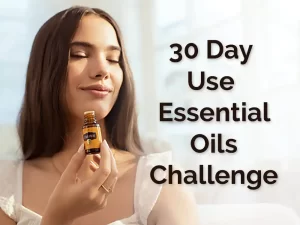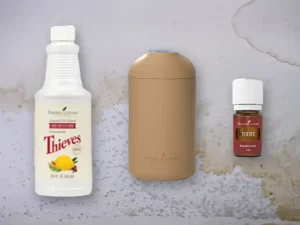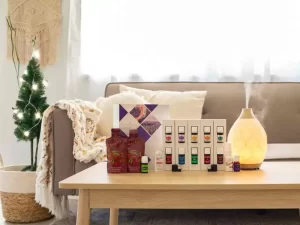So you may have seen recipes which include essential oils in them on the internet. But can you use essential oils in cooking or drinks?
Firstly, if you think about it, we’ve been using essential oils in the form of food essences in cooking for centuries. I was using lemon and peppermint essence in my cooking long before I knew about essential oils.
Take a walk up any supermarket aisle and if you start to read the labels you will also see that food manufacturers use essential oils in everything from peppermint ice cream to lemon juice.
The difference is that we add them to food, rather than simply taking them in an undiluted form.
If it comes from a plant that I eat shouldn’t I be able to eat it?
Yes but not all essential oils are created equal. Most essential oils are created for the perfume industry, to scent soaps and body products etc. They are not produced to be ingested.
Many essential oils are adulterated. This is where substances such as vegetable oils and even chemicals such as propylene glycol are added to an essential oil to extend it. The other substance take son the aroma of the essential oil and allows it to be sold at a cheaper price. These essential oils should never be used in cooking.
Here in Australia we have a regulatory body which is called the Therapeutic Goods Administration (TGA). They regulate all therapeutic products that are sold. This includes supplements that contain essential oils.
These supplements have been created specifically for a designated purpose by someone who has been specially trained. They have been tested and evaluated before being sold. They are not just mixing up a recipe they found on Pinterest. There are some amazing immune support supplements from Young Living that contain essential oils, such as Inner Defence and Longevity which are approved by the TGA to be taken.
Can you use essential oils in cooking?
Only use essential oils for cooking that are labelled for use in food and drinks. You really don’t want to risk your health, your gut flora or your liver by using essential oils that have not been produced for this specific purpose.
I often hear of other essential oil companies saying things like “you can ingest our oils” or “our oils are safe for cooking”. Believe me if it doesn’t say it on the bottle then don’t risk it. Plus in Australia we can’t use the word ingest when it comes to essential oils, so that should immediately sound alarm bells if you hear people use that word.
In Australia we have pretty tough safety standards across the board and this certainly extends to our foods. These particular standards are called The Australian and New Zealand Food Standards and guess what?
Always check the label!
Young Living can actually label a lot of their essential oils for use in food and drinks because their essential oils meet these high standards. Close to 50 of Young Living’s Essential Oils do meet the food labelling laws set out by Food Standards Australia and New Zealand.
This is one of the reason’s I choose to use this particular brand of essential oils. Other companies may say you can do this with their essential oils, but unless they are specifically labelled as such for this purpose, I wouldn’t do it.
Common sense still needs to play a part here and I always use some sort of fat when adding an essential oil to a recipe. I might use coconut oil to add it to a smoothie, butter to add it to a cake or honey to add them to a stir fry.
Here is a video I made showing you how to make Lemon Myrtle Fudge.

Here are a few tips for using Essential Oils in food and drinks

My top tips :
- Only use essential oils that are approved for culinary use and say this on the bottle or sticker on the lid.
- Add the essential oils at the end of cooking to get the most from the flavour.
- Add essential oils to a fat such as butter, cream, coconut oil, olive oil, egg, milk or even honey and stir this through your dish to disperse the essential oil.
- Use a toothpick or skewer to add strong oils such as Oregano essential oil, Thyme essential oil, Basil essential oil and Cinnamon Bark essential oil to your cooking.
- Drop essential oils on to a spoon before adding them to your fish that way if you add too many drops you can pour it back in to the bottle.
- If adding essential oils to baking you may need to add a few extra drops as some of it will evaporate (flash off) when baked at a high temperature.
You can download an electronic copy of my Cooking with Oils Makes Good Scents ebook for more great recipes using essential oils. You can even share it with people who are interested in cooking with essential oils but don’t know where to start.
Of course, if you are not comfortable using oils for flavouring, that’s perfectly fine. Topical and aromatic uses are great options. For more information on How to Use Essential Oils check out my blog post.










 Subscribe to Hot Oily Mumma
Subscribe to Hot Oily Mumma